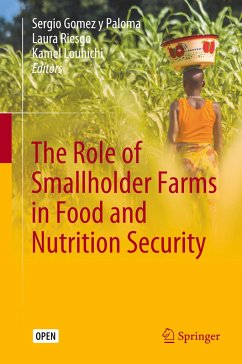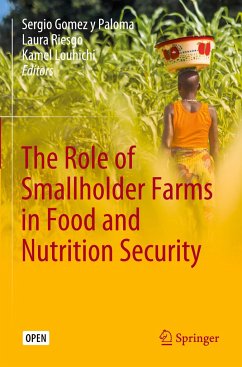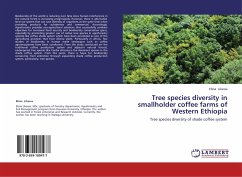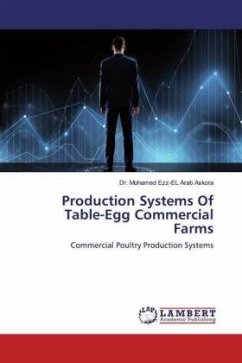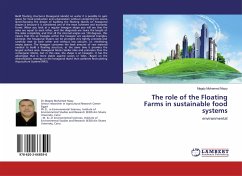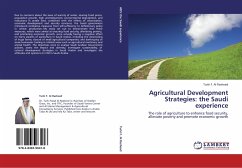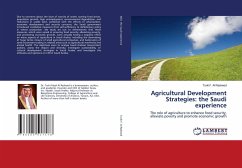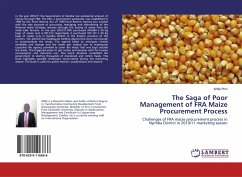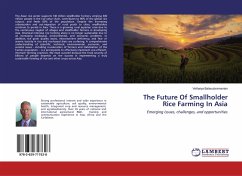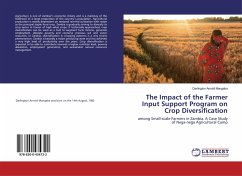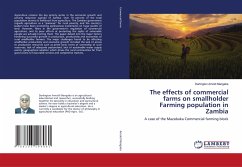
The effects of commercial farms on smallholder Farming population in Zambia
A case of the Mazabuka Commercial farming block
Versandkostenfrei!
Versandfertig in 6-10 Tagen
62,99 €
inkl. MwSt.

PAYBACK Punkte
31 °P sammeln!
Agriculture remains the key priority sector in the economic growth and poverty reduction agenda of Zambia. Over 70 percent of the total population derives its livelihood from agriculture. The Zambian government regards agriculture as a "panacea" for rural poverty, and the country's leaders have been promoting agribusiness investments on huge swaths of land. However, flaws in the government's regulation of commercial agriculture, and its poor efforts at protecting the rights of vulnerable people are actually hurting them. The paper delved into the major factors hindering successful growth in pr...
Agriculture remains the key priority sector in the economic growth and poverty reduction agenda of Zambia. Over 70 percent of the total population derives its livelihood from agriculture. The Zambian government regards agriculture as a "panacea" for rural poverty, and the country's leaders have been promoting agribusiness investments on huge swaths of land. However, flaws in the government's regulation of commercial agriculture, and its poor efforts at protecting the rights of vulnerable people are actually hurting them. The paper delved into the major factors hindering successful growth in production, productivity and economies of rural smallholder farmers. The major challenges found to be affecting smallholder productivity and economic growth included the lack of access to production resources such as prime land, terms of ownership of such resources, lack of adequate pastureland, lack of sustainable water supply points, geographical isolation which drives the rural communities far from good access to favourable services and competitive markets,



